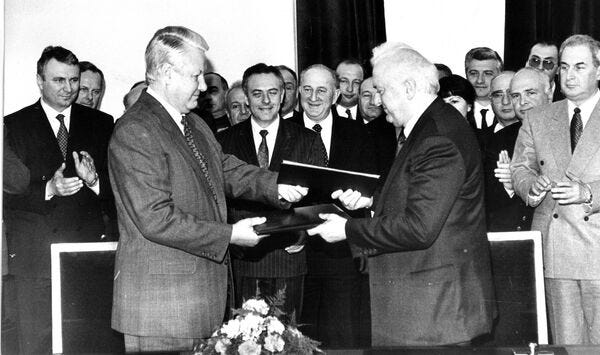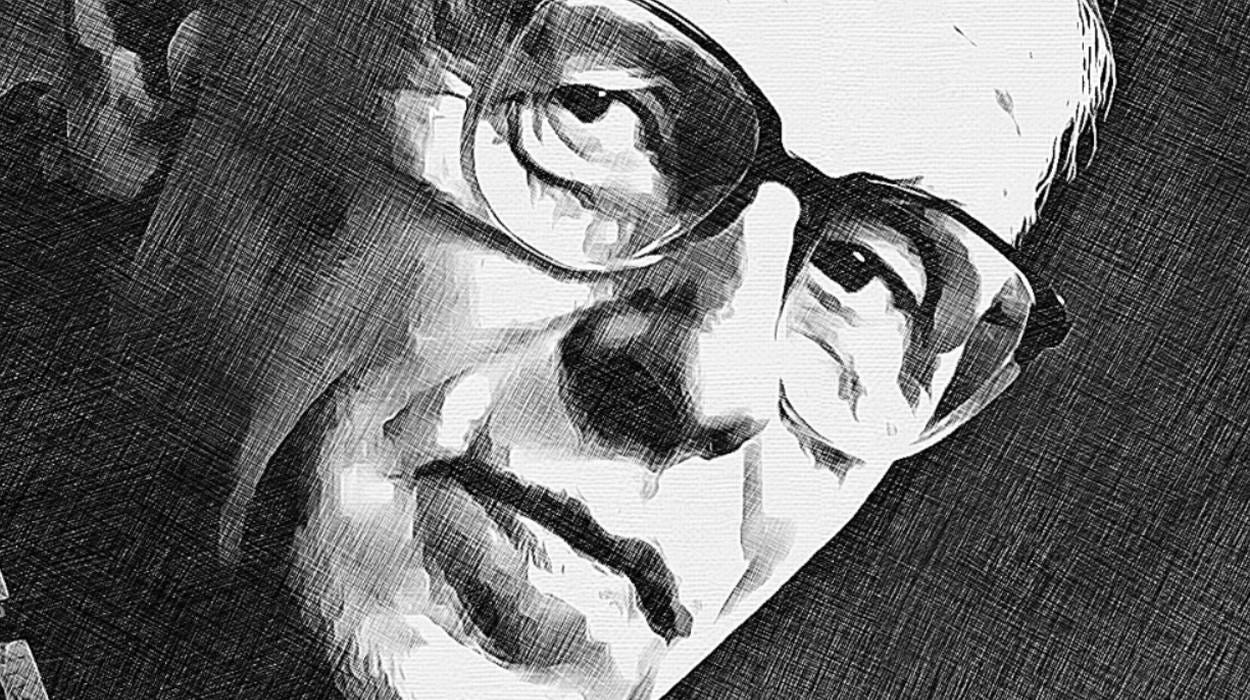Audi alteram partem
In light of recent developments in Georgia, particularly today, numerous posts and comments have surfaced on social media. As is often the case, these are predominantly from amateur journalists who rely on copy-pasting or from those uninformed about the topics they discuss, or even from those whose interests might lead them to distort facts. These sources continue to echo the familiar narrative: 'Russia invaded Georgia in 2008,' '20% of Georgian territory is under occupation,' etc. Among those perpetuating these falsehoods are esteemed organisations like The Financial Times, Channel Four, CNN (Christiane Amanpour), as well as former U.S. diplomat Ian Kelly.
AW has responded individually to each of these claims. While they may not heed our words, the truth remains immutable in history. Let us also share some crucial notes on this topic and recent events here.
THE FACTS
Georgia lost control over South Ossetia after the 1991-92 war and over Abkhazia after the 1992-93 war, both conflicts initiated by Georgia itself. Also, it's important to note that even during the period from 1931 to 1991 (after Stalin downgraded Abkhazia's status), when Abkhazia was part of the Georgian SSR under nominal autonomy, both regions were part of the administrative structure of the USSR, and NOT part of an independent Georgian state.
In the period 1922—1930 Abkhazia enjoyed the status of a union republic associated with but not subordinate to Georgia. On 19 February 1931 the Sixth All-Georgian Congress of Soviets decided, presumably with Stalin’s consent, to deprive Abkhazia of this status and incorporate it into Georgia as an autonomous republic. Also see: The Evolution of Abkhazia’s Status from 1917 to Soviet Era
Throughout most of the 1990s, particularly when Shevardnadze-protégé Andrei Kozyrev served as Boris Yeltsin's Foreign Minister, Russia's policy was not pro-Abkhazian, as evidenced by a CIS blockade imposed along Abkhazia’s River Psou border with Russia. It’s noteworthy that Boris Yeltsin’s Russia and Georgia, under Eduard Shevardnadze, imposed sanctions on Abkhazia.

One might like it ot not, today Abkhazia and South Ossetia are recognised as independent by five UN member states, and international law does not mandate a minimum number of recognitions for an entity to be considered a legitimate member of the international community.
In Abkhazia, authority rests with the partially recognised -de facto- authorities but not with Russia or its military. Abkhazia maintains its own parliament, government, army, police force, and other state institutions.
For years, Freedom House, has consistently labelled both Georgia and Abkhazia as "partially free." Perhaps in the future, they might categorise Georgia as 'not free'-, time will tell.
It is also important to note that Russian activities within Abkhazia are not arbitrary but are guided by bilateral agreements between Russia and Abkhazia, similar to agreements the USA has with 159 countries worldwide.
Indeed, Russia's influence in Abkhazia is significant, but it stems not from occupation, but from the international isolation imposed on Abkhazia at Georgia's behest. If Abkhazia were recognised internationally and allowed to forge economic ties with the outside world without interference, there would be less reliance on Russian support. Thus, our dependence on Russian aid is a consequence of international isolation, not occupation.
“It is difficult for us, but the European states don't provide us with any alternative. They have closed all the doors to us. What should we do? Our ties with Russia solve practically all of our problems. For small Abkhazia, the large Russian market, Russian tourists or the security guarantee is enough. We have the right to dual citizenship. In order to travel to different countries outside of Russia, our citizens also have Russian passports.”
― Sergey Shamba on Russia's influence over Abkhazia and whether he is concerned about this or not. (Spiegel International, 2008).
The narrative that Abkhazia and South Ossetia are 'occupied' territories, as perpetuated by Georgia and its Western allies, oversimplifies the conflict to being merely between Georgia and Russia, ignoring the perspectives of Abkhazians and Ossetians.
Moreover, after initiating the war in 1992, Georgia forfeited any rights it might have had to Abkhazia, especially considering Abkhazia's autonomous status within the GSSR since 1931 and the subsequent dissolution of the USSR. As such, Georgia cannot rightly claim that Abkhazia is an occupied part of its territory.
Furthermore, since Abkhazia is not part of Georgia, it cannot be considered occupied simply because Georgia does not control it.
Ultimately, only Abkhazia can determine whether it considers itself occupied, and it does not view itself as such!
+ Don't call us 'occupied', by Arda Inal-Ipa
+ Abkhaz President Responds to Obama Administration Occupation Claim
“I rather consider the position of the Abkhazians justified. It seems to me that special attention should be paid to the problems of small nations, the freedom and rights of large nations should not be exercised to the detriment of small ones.”
― Andrei Sakharov, Gorky, Moscow, and next Everywhere (А.Д. Сахаров. Горький, Москва, далее везде).
The European Parliament awards The Sakharov Prize for Freedom of Thought while ignoring Sakharov's own views.






